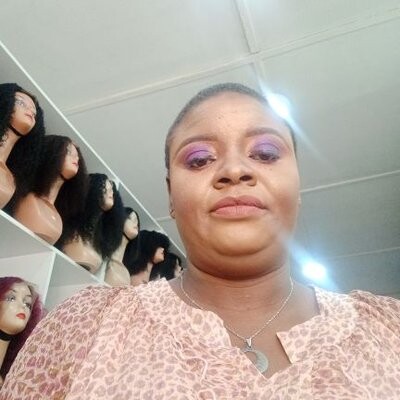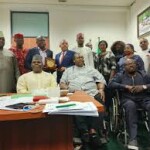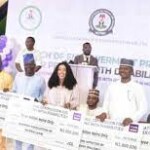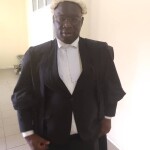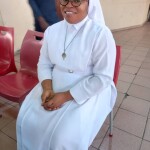They lose their rights to immunize their babies on an equal basis with others; but they’re risking all to preserve what they have left.
By Elijah Olusegun
Precious Nwode, like other mothers, took her baby to Azuiyiokwu General Hospital, Abakaliki, for immunization few years ago. But the health workers there didn’t regard her like they did other nursing mothers. She read their lips, but couldn’t make much of the movement. One of them then shouted at her, and weeded her out of the queue.
The mother of two believed it was all her fault—that her baby would miss that jab.
“I started crying,” she told ER in August.
Nwokwu Cecilia, too, got mixed up in a similar visit at a primary health centre (PHC) in Abakiliki in 2010. The nurses spared her no time to make herself clear. They pulled her and her baby aside, and attended to those behind her. She refused to shed tears.
The health workers’ attitude didn’t hit Nurse Oba Blessing at the Bola Tinubu PHC, Akowonjo, as out of place—in the kind of environment she claimed they work. Her colleague Adelola Grace at the Rauf Aregbesola PHC in Okunola believed it’s about individuals. Neither of them had any disability awareness training in responding to mothers with disabilities on maternity wards.
Not for lack of trainers, though.
In its 2020 advocacy, the Centre for Citizens with Disability (CCD) trained the supervising National Primary Health Care Development Agency (NPHCDA) on this. Its focus was the Discrimination Act 2018 provisions. The agency wouldn’t confirm to ER it shared with PHC authorities and health workers across the nation the lessons learnt. No directives, either.
The Act upholds Precious’ equality as a woman, and caters to her health needs as a person with disability. In addition to its Section 1 that prohibits discrimination, the Act’s Section 24 also provides for special communication at hospitals. These are also clear provisions, JONAPWD (Lagos) chairman Lukman Salami said, in sections 21 and 27(8) of the Lagos State Special People Law (LSSPL). Most of the other states also make the provisions in theirs. On the continent, too, Nigeria ranks among the 16 nations that have ratified the Protocol to the African Charter on the rights of PWDs. It did that of the UN Convention on PWD Rights 14 years earlier. Article 17 of the Protocol insists health campaigns, including immunization, flesh out their disability-specific aspects, and provide health workers with disability-specific training.
At the mercy of those nurses, Precious and Cecilia had no alternative then, years before these laws kicked in. Even now, the hardest they could have done was anything rash to save what they had left of their dignity.
For all that embarrassment, Fausat Shobola, in her reproductive years, didn’t bother taking her children to any PHCs at Oshodi, Lagos. Routine immunization, under Nigeria’s health system, falls to these PHCs—more than 34,000 of them. Their state boards and local government health departments coordinate this and other public health services. And the NPHCDA has been overseeing the responsibility since its 2007 merger with the National Programme on Immunization (NPI). Along the line, a number of policies have come up to ensure every baby gets doses of vaccines appropriate for their age. The policies are, largely, community-based: the Minimum Standards for Primary Health Care and the women-based Community Health Influencers and Promoters Services (CHIPS). Both stand out among others.
Their implementation eventually brought immunization volunteers to Fausat’s neighbourhood. But that hardly made a dent on the communication barrier. “Whenever I saw my neighbours bringing their children out, I would copy them,” she said, using sign language.
Fausat’s counterparts at Shomolu and Isolo wouldn’t budge an inch, either in their communities or at the PHCs. “My sister always took my children there, and followed up every time,” one of them said. And much as she took the vaccine seriously, Yemisi Isado, JONAPWD’s vice chairman (Lagos), avoided the PHC and the volunteers.
ER interviewed over a dozen mothers in the two states for this report. Twenty-five percent of them emphasized they simply ‘copied’ other mothers presenting their children for immunization. This trend, pediatrics Prof. Tagbo told ER, demands the NPHCDA’s urgent attention. And there could be consequences, according to Ijeoma Nnodim, pediatrician and founder of the Isonye Foundation, an organization of persons with disabilities in Anambra. In their response, the Paediatric Association of Nigeria (PAN) didn’t address the question of medical errors and complications that might have resulted from the risk the copycats ran. The women’s lived experiences were all music to their ears in PAN. “But they cannot be denied, and their impact varies from society to society,” said Ejiro Okotie, executive director, the Hope Inspired Foundation for Women and Youth with Disabilities (HIFYWD).
On further analysis, 60 percent of the mothers said they relied on relatives to take the children to health centres. These family members became interpreters and, when necessary, doubled as defenders.
To scale the communication barrier, and escape the stigma it brings, other mothers leveraged their literacy. Or its combination with family support and hired interpreters.
And when deaf mothers cannot afford this degree of dependence, they lose their rights to health care services, and self-dignity. The loss also hurts their babies: their health risk, avoidable in their early childhood, now increases with age.

Fausat
Cecilia’s baby who suffered discrimination alongside her mother is about 14 years old now. Isado’s heads to 30. Those children whose deaf mothers couldn’t breast the odds then have equally come of age. With about 25 vaccines correctly dosed out over two years, the NPHCDA and the state PHC boards could have fortified these kids against yellow fever, diphtheria, tuberculosis, and others of the 12 vaccine-preventable diseases afflicting Nigerians.
A.A. Adekoya, HOD, health, Alimosho LGA, couldn’t confirm how her area’s immunization procedure accommodates deaf mothers bringing their children. Nor could the two PHCs in the area. One of the three members of the Association of Sign Language Interpreters, Nigeria, working at LASUTH told ER in June they were not aware of any member working at any PHC. And none of the eight Precious, Cecilia and others took their babies to in Ebonyi had any.
For Adekoya, it was no use arguing some policies and laws provide these women with special communication. Lagos, she noted, can’t even afford it—putting interpreters in each of its 308 PHCs. The state’s 25 secondary health centres don’t even enjoy that luxury—except LASUTH. Its PHC board didn’t respond to ER’s interview request on the manner of implementation of these particular LSSPL provisions. And the Discrimination Act 2018, too.
All this goes beyond impunity. It just follows there is little the disability community should expect from the government and its law. “The process that midwifed the LSSPL didn’t emanate from the government,” Salami told ER. “It came as a private member bill that resulted from our agitation. So they can’t be intentional with its implementation.” That absence of intention from the beginning, the lawyer noted, explains the government indifference to the deaf mothers’ plight at PHCs.
Up till now, most of the 20 states that flaunt the law haven’t got around to putting together any implementation frameworks. This smacks of irresponsibility. “Many of them don’t know how they will adapt the provisions of this law to meet the reality on the ground.”
Apathy, with its accompanying cluelessness, is just only one. And it borders on another: disregard for the basic principle of equality. Here, the disability law remains blunt where it exists, and its implementation a matter of choice, for whatever excuse, including cost. But these provisions for sign language and others, Ijeoma said, are legal obligations. The government has just chosen to treat them as “mere suggestions”.
Precious, Cecilia, Fausat and other deaf mothers, with their children, find themselves at the receiving end of these half measures. Especially at the grassroots. In its Managerial Systems (chapter 9), the PHC Minimum Standards provides for Community Development Committees; they manage immunization and other health services at the village, ward, and local government levels. The policy allows disability community to have a representative on the committee. The agency’s community health department and its executive director wouldn’t respond to ER’s request seeking clarification on this disability representation. And for the CHIPs, there’s no way of confirming the PWD percentage of the over 8000 women working the scheme across 13 states.
The Alimosho PHCs may have supervised the activities of some CDCs; they certainly have no handle on disability representation on those committees. It doesn’t bother the authority anyways. Nurses Grace and Blessing told ER their health centres keep no record of deaf mums bringing their babies for immunization. The local government health department is not aware of this, either. With no training in disability, their volunteer workers and mobilizers can’t document their field experiences with deaf mothers seeking immunization for their babies. “We only report encounters with deaf mothers to our supervisors who may later schedule a second visit,” a volunteer in Abuja told ER.
This back-fitting dampens many deaf mothers’ responses to immunization of children. And it shows on the PHC maternity wards. “Only one patient like that once came here, but I can’t remember when,” Blessing said. The only one Grace remembered at her PHC was a relative of hers. And the two nurses had to wing it on those occasions. As a result of poor staffing, pressure usually mounts; the already inaccessible communication breaks down; and the deaf women most likely take the heat.
Isado believes the governments lack the will to make the disability laws work for deaf mothers. And the fall-out of this first batters something within the deaf mums. “The feeling of PWDs being second-class citizens is not going away anytime soon,” she said.
It shouldn’t even have happened in immunization, of all services. This core public health service, Ijeoma said, ought to be accessible to everyone, more so for women with disabilities and their children.

NPHCDA Boss Muyi Aina
The mums who resorted to imitating others during immunization jeopardizes their children’s well-being, too. “In most cases an extra dose of a vaccine may not lead to severe immediate harm as vaccines are carefully regulated,” said Ijeoma. “Over-vaccination can increase the risk of side effects such as fever, swelling at the injection site, and other adverse reactions which may be distressing for the child and parents.” The paediatrician didn’t rule out vaccine hesitancy in the wake of this confusion—and dehumanization.
Somehow, these mothers are contributing their quotas. As the PHC authorities ignore provision of sign language interpreters, they violate these mums’ rights to access what Ijeoma called critical information regarding immunization. And the children they so nurse become a generation—even if vulnerable.
It’s difficult to figure out the population of such children, zero-dose or partial. UNICEF puts the most recent number of the unvaccinated at 2.2 million in Nigeria. That makes it the world’s second largest. And Alimosho LGA, which both PHC and other cover, grosses in the nation’s highest: over 35,000, mostly children of disadvantaged mothers. No denying kids born of deaf mothers fall into this category.
With all these discrimination and disrespect, many of the deaf mothers have got their backs to the wall. Their fear that the government lacks their interest at heart also compounds things. They have to rely on their own devices to cope.
Fausat, back then, said she followed suit anytime her neighbours brought out their children for immunization. No question asked or answered. That helped the petty trader guard her personal space, and maintain a social distance from the volunteer health workers. Her chances of embarrassment and stigmatization also reduced.
Many of the mums dread breaking down in tears like Precious. Just to hedge their self-respect, some of them will take up any cost to get the free vaccines. “I personally would pay more to take my children to private hospitals for it,” Isado said. The bits she and others throw around to hire interpreters for, transport and feed relatives chaperoning them could add up to something. An interpreter, for instance, charged N5000 then in Lagos; the sharks among them bid higher. Shelling that out to maintain dependence—at the expense of the independence the AU Charter, Article 3(a), guarantees PWDs—remains the real cost.
It seems these deaf mothers like to bleed themselves white over a trifle, especially their self-image. The ableists might dub this playing victim. “It’s not impossible hearing women with disabilities recount these,” the HIFYWD director said. “Unfortunately, this is mostly the norm rather than the exception.”
But PAN has now backed its initial curiosity with some concern. “We will follow up with a survey,” Secretary Chika Duru told ER. “We can get a comprehensive dimension on this particular issue to guide us on the way forward.”
Fausat and Isado can only look back on their mothering experience as deaf women.. The communication hurdles she and others cleared during immunization now lie behind as bygones.
Precious and some of her colleagues ER interviewed, however, are still active in their reproductive years. “It is not good that the nurses are shouting at us, and ignoring us when we really need attention,” Precious said.
They might like to hope with the paediatricians—that there’s a way forward—for mums worrying about raising a generation of zero- or partial-dose Nigerians—just because the mums lost their hearing.
The odds, though, pile high against these mothers.
*This story was supported by the Centre for Journalism Innovation and Development (CJID) under its institutional support for newsrooms on disability and inclusive reporting.

